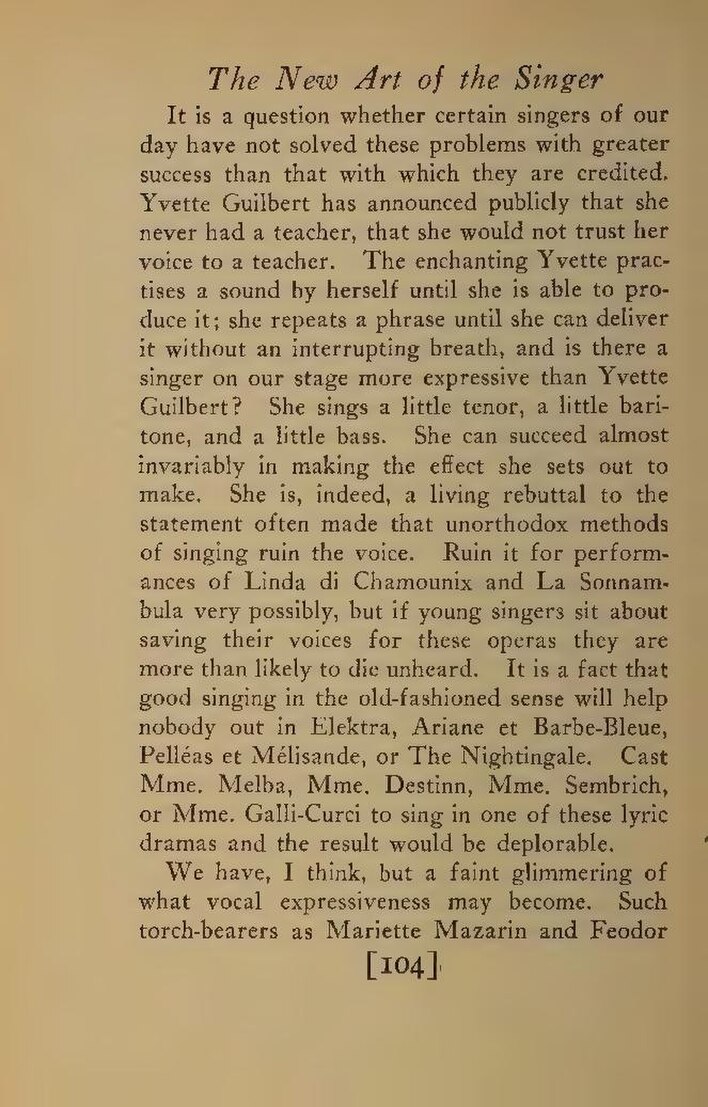It is a question whether certain singers of our day have not solved these problems with greater success than that with which they are credited. Yvette Guilbert has announced publicly that she never had a teacher, that she would not trust her voice to a teacher. The enchanting Yvette practises a sound by herself until she is able to produce it; she repeats a phrase until she can deliver it without an interrupting breath, and is there a singer on our stage more expressive than Yvette Guilbert? She sings a little tenor, a little baritone, and a little bass. She can succeed almost invariably in making the effect she sets out to make. She is, indeed, a living rebuttal to the statement often made that unorthodox methods of singing ruin the voice. Ruin it for performances of Linda di Chamounix and La Sonnambula very possibly, but if young singers sit about saving their voices for these operas they are more than likely to die unheard. It is a fact that good singing in the old-fashioned sense will help nobody out in Elektra, Ariane et Barbe-Bleue, Pelléas et Mélisande, or The Nightingale. Cast Mme. Melba, Mme. Destinn, Mme. Sembrich, or Mme. Galli-Curci to sing in one of these lyric dramas and the result would be deplorable.
We have, I think, but a faint glimmering of what vocal expressiveness may become. Such torch-bearers as Mariette Mazarin and Feodor
